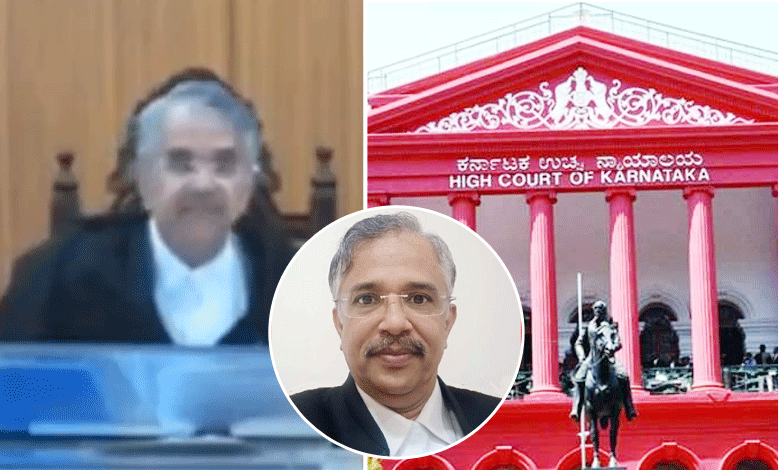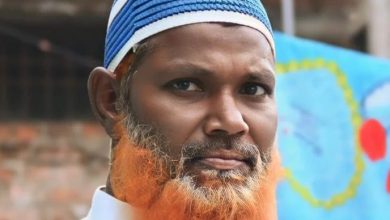Karnataka High Court judge labels Muslim-majority area as ‘mini Pakistan’
 Bangalore: Karnataka High Court judge Justice V. Srishananda has referred to a Muslim-majority area in Bangalore as ‘mini Pakistan’, stirring controversy and raising questions about the treatment of religious minorities in India.
Bangalore: Karnataka High Court judge Justice V. Srishananda has referred to a Muslim-majority area in Bangalore as ‘mini Pakistan’, stirring controversy and raising questions about the treatment of religious minorities in India.
According to Kashmir Media Service, the judge has reportedly stated that the area from Mysore Road flyover market to Goripalya is “Pakistan, not India.” This comment has drawn attention to the broader issues faced by Muslim communities in the country.
The National Family Health Survey (NFHS) has revealed that Muslims in India face several socio-economic challenges. The survey indicates that the average education level among Muslims is lower compared to other communities. Additionally, the infant mortality rate in Muslim-majority areas is approximately 5% higher than the average in Hindu-majority regions.
The NFHS data also reveals a higher rate of malnutrition among Muslim children under five years old, suggesting inadequate access to proper nutrition within the community.
These statistics highlight the disparities faced by Muslim populations in India, despite the country’s secular constitution. Critics argue that such inequalities and recent incidents of perceived bias contribute to a sense of marginalization among religious minorities.
The Bharatiya Janata Party (BJP), which has been in power for three consecutive terms, has faced criticism from opposition parties and human rights organizations for its policies towards minorities. However, the party maintains that its governance is inclusive and aims for the development of all communities.
As India celebrates 77 years of independence, the status and treatment of its religious minorities continue to be a topic of national debate and international scrutiny.








